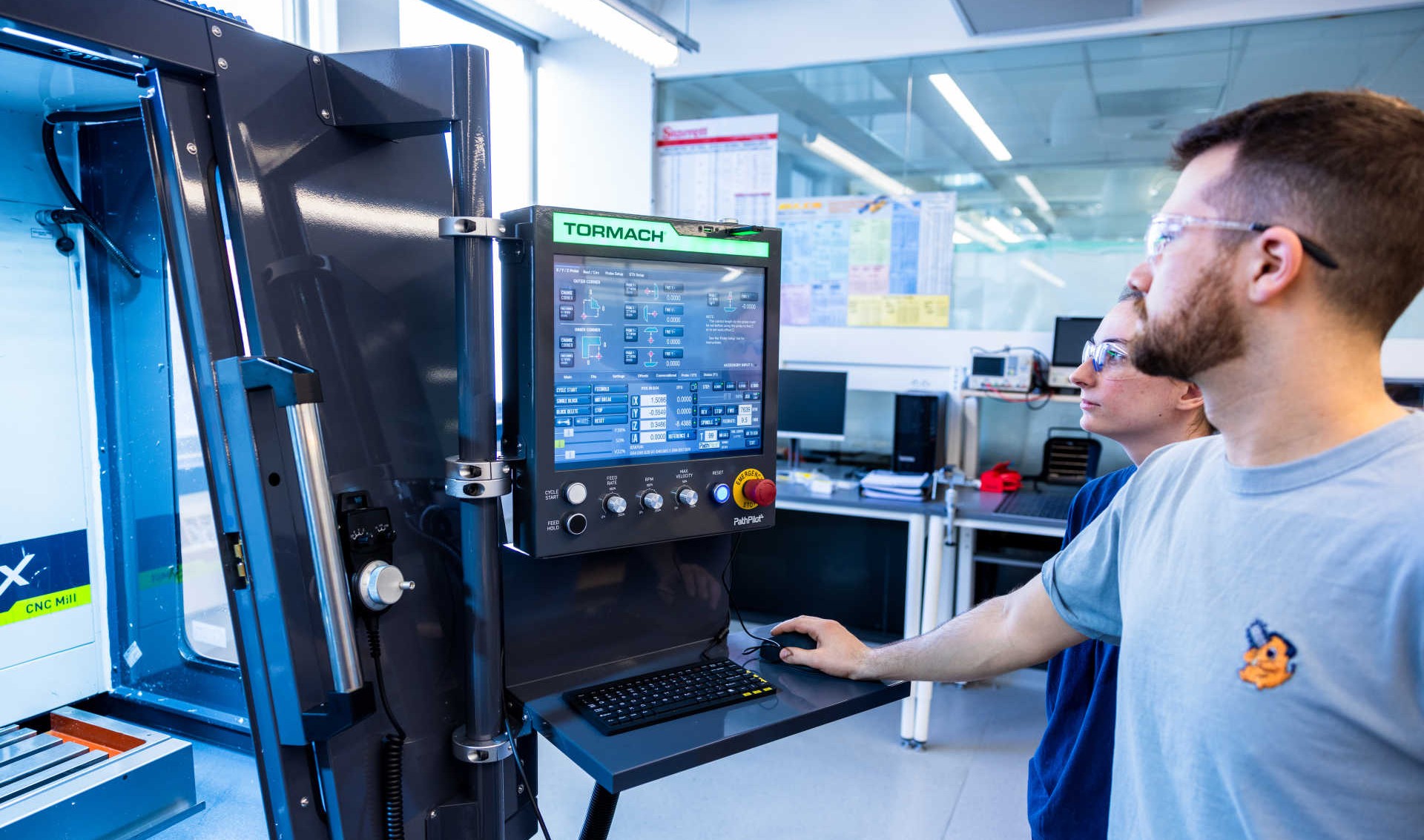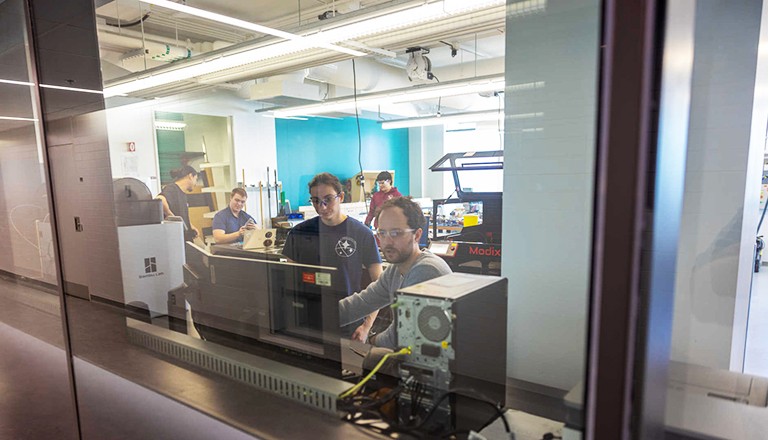Gina Cody School welcomes a new makerspace

Concordia’s Gina Cody School of Engineering and Computer Science is opening a new makerspace facility. Located on the 10th floor of the Henry F. Hall Building, this space is designed to support a wide range of student projects and initiatives.
“Our staff, all current students, have been thoroughly trained on the equipment,” says Alexis Gosselin, academic facilities coordinator, who also notes the inclusive nature of the makerspace. “This approach ensures that all users, regardless of their prior experience, can safely and effectively engage with the available technology.”
The makerspace is outfitted with equipment for 3D printing, electronics and computer numerically controlled machining, as well as a range of manual tools for woodworking and metalworking. These facilities are available to all Gina Cody School students to work on both academic projects and student society activities.

The space will also offer services such as project consultations and fabrication sessions, which are designed to assist students in developing and completing their projects. During the project consultations, students can present their projects for validation and booking time on the equipment.
The fabrication sessions vary in length depending on the project’s complexity and the availability of equipment and they are always supervised by a staff member.
Mourad Debbabi, dean of the Gina Cody School, highlights the educational significance of the makerspace.
“This facility is an excellent representation of our commitment to experiential learning,” he says. “It provides Gina Cody School students with practical, hands-on experience that is crucial in today’s engineering and technology fields.”
Materials for 3D printing projects, including filaments, resins and powders, are provided free of charge. However, students working on machining projects need to supply their own materials.
The makerspace operates across multiple rooms on the 10th floor, with each dedicated to specific activities:
- Room H.1021 for woodworking and basic 3D printing
- Room H.1025 for machining and electronics
- Room H.1020 for advanced 3D printing
“This new facility represents a significant investment in student learning and development, offering a practical space for innovation and creativity,” Debbabi says.
For more information about the makerspace and how it supports student projects, visit the Gina Cody School of Engineering and Computer Science makerspace web page.


